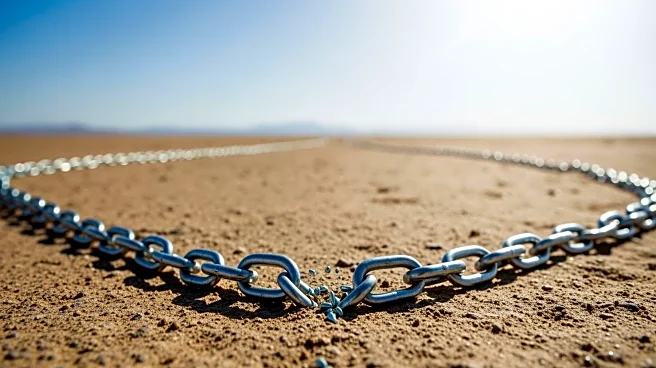What's Happening?
Hamas has stalled the return of hostage remains to Israel, with 13 bodies still held out of the original 28. Israeli officials believe Hamas could release eight more bodies but accuse the group of stalling to extend the ceasefire without disarming. U.S.
Secretary of State Marco Rubio has emphasized the importance of returning all remains to maintain the ceasefire. Despite efforts from all sides, the international recovery force remains inactive, and the situation is causing anxiety among the families of the hostages.
Why It's Important?
The delay in returning hostage remains is a critical issue affecting the ceasefire agreement between Israel and Hamas. The situation underscores the challenges in negotiating with non-state actors and the complexities of international diplomacy. The involvement of the U.S. highlights the global significance of the conflict and the potential impact on international relations. The outcome of these negotiations could influence future peace efforts and regional stability.
What's Next?
The international community, including the U.S., may increase diplomatic pressure on both Israel and Hamas to adhere to the ceasefire agreement. The situation could escalate if the ceasefire collapses, leading to renewed conflict. The international recovery force may eventually become active, depending on the progress of negotiations and logistical challenges.

















